6 February 2012
This is what a geologist looks like
Posted by Jessica Ball
Recently there’s been activity on Twitter (#Iamscience) and Tumblr (the “This is what a scientist looks like” blog) with a simple message: Scientists are people too! (And boy, do we have some fun hobbies.)
I think these efforts are really important right now. In my opinion, one of the big problems with the anti-science attitude in this country is that people seem to think that scientists are aloof and unapproachable by anyone who isn’t a scientist. We’ve somehow acquired the image of being brainy but secretive folks who closet themselves in their labs with mysterious research, out of touch with the “real” world and unable to relate to non-scientists. Well, nothing could be further from the truth! Scientists, including geologists, are people who take their jobs just as seriously as anyone else, but we also have lives outside of science – and we do some pretty interesting things. My work as a volcanologist certainly defines a key part of who I am, but it’s not the only part of my life that matters. So while you may see me looking like this at meetings:
Or like this when I’m doing field work:
…I also have hobbies and interests just like any other person. For example,
I bake and cook.
I play violin and viola da gamba in orchestras – the violin for 18 years, and the gamba for 6 years. I just played violin in a concert yesterday!
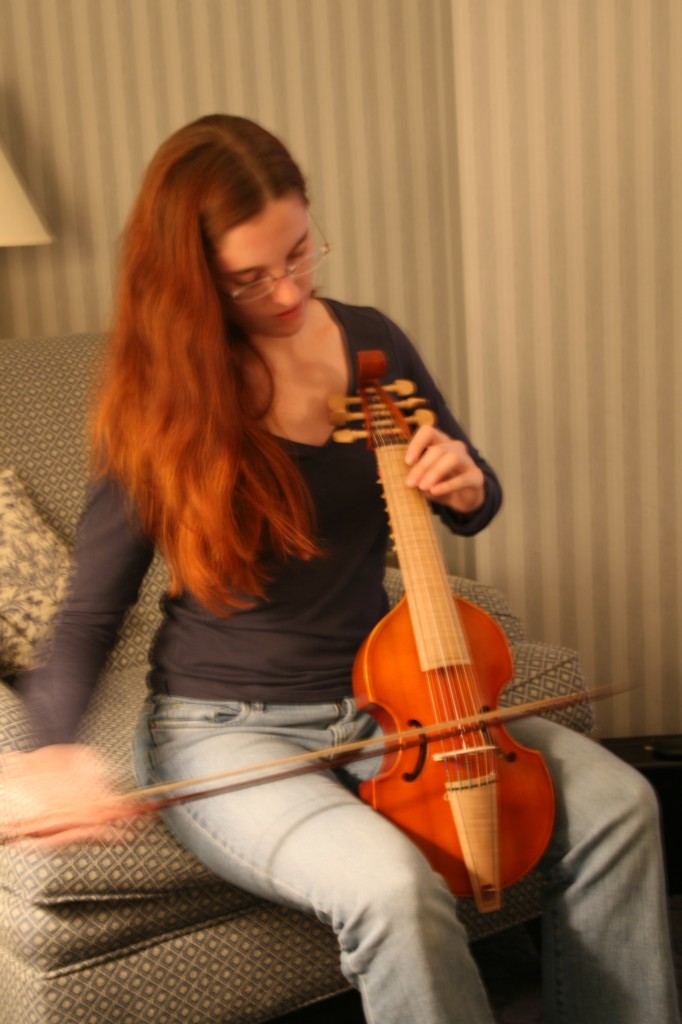
A viola da gamba is a Renaissance instrument that's kind of like a cross between a cello and a guitar. Yes, it looks weird, but it sounds awesome.
I dabble in historical reenacting.
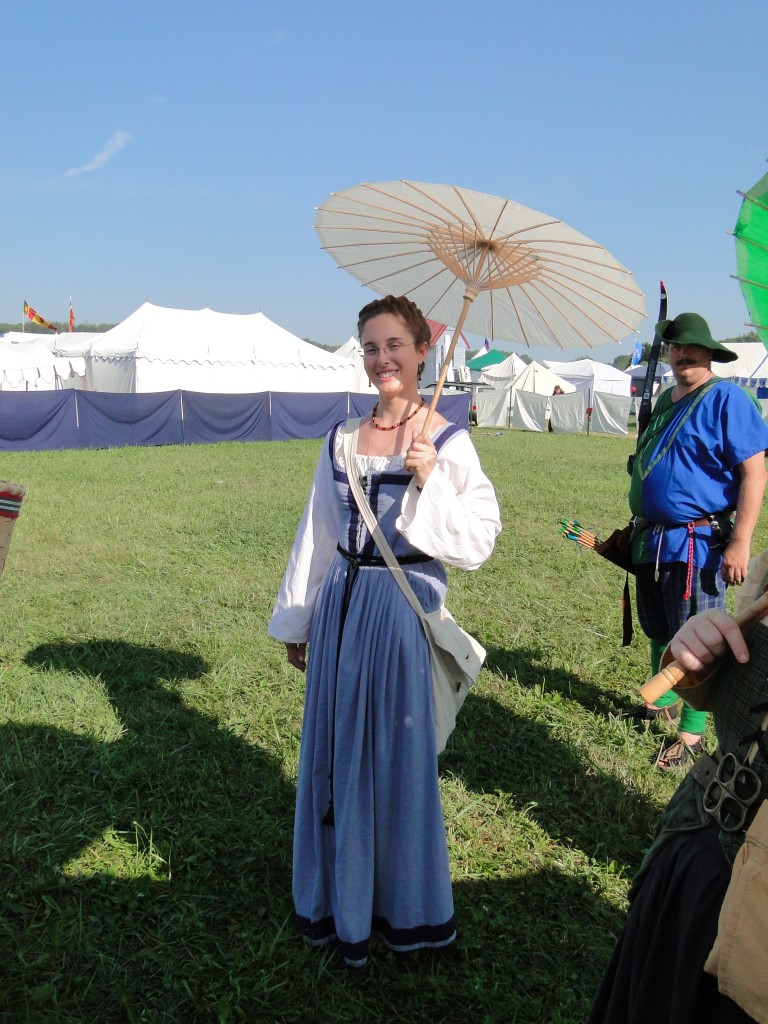
Okay, so the parasol isn't Italian and I'm not wearing my dress's sleeves. But hey, who's going to nitpick when it's hot out? (If you recognize the setting, you'll know why I'm being so lax with the historical accuracy.)
I take photos of things other than rocks (occasionally).
(Actually, there are geological features in two of these photos, but I wasn’t paying attention to those. I swear.)
I play with my cat (somewhat less than she’d like, but that’s what working on a PhD will do to your free time).
I like to lie on the beach and do nothing.
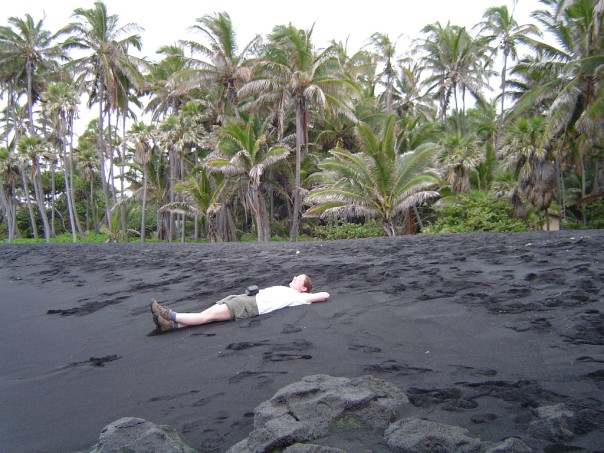
Okay, so it is a black sand beach and I did happen to visit it on a field trip to Hawai'i. And I'm wearing my field gear. I do like lazing around beaches no matter where they are, though.
I dress up for Halloween.
I sleep in on weekends and sing along to musicals. I volunteer at archaeological digs. I sew and knit. I love watching old cheesy pirate movies, sappy romantic flicks and fantasy adventures. I rock-climb (slowly), play basketball (also slowly, but I can still hit three-point shots), and ice-skate. I go out with my friends for wings and pizza and beer.
I am not a one-dimensional person. I love volcanoes and volcanology, but I also have a vibrant and interesting life outside of being a scientist. No matter what you see on TV or in the news about how scientists are out of touch with “normal” people, it couldn’t be more wrong! We have hobbies and families and good and bad times just like everyone else. Our jobs may work a little differently, but they are still jobs. I don’t assume that my friends who are accountants, or military pilots, or writers, or graphic designers, or salespeople, are defined only by their jobs – because I know that they’re not!
I think this also relates back to some excellent points that Ryan Anderson at The Martian Chronicles recently made about grad school: Maintaining a work-life balance is pretty important for your sanity, especially if you suffer from that common affliction of grad students everywhere, guilt over not working hard enough. Ryan reminds us to “Do fun stuff” and “Have a life” to help get past rough patches, and I think that’s an important thing to remember no matter what stage of your career you’re at. If defining yourself only by your job is what works and makes you happy, that’s great; but to me it’s apparent that branching out beyond the science makes a lot of people happy as well (and they’re all on that Tumblr blog, including me).
So, if you’re thinking about becoming a scientist, don’t let a stereotype scare you away! We have just as much fun outside of our jobs as anyone else – and, if we’re lucky, we get to have fun doing our jobs too.


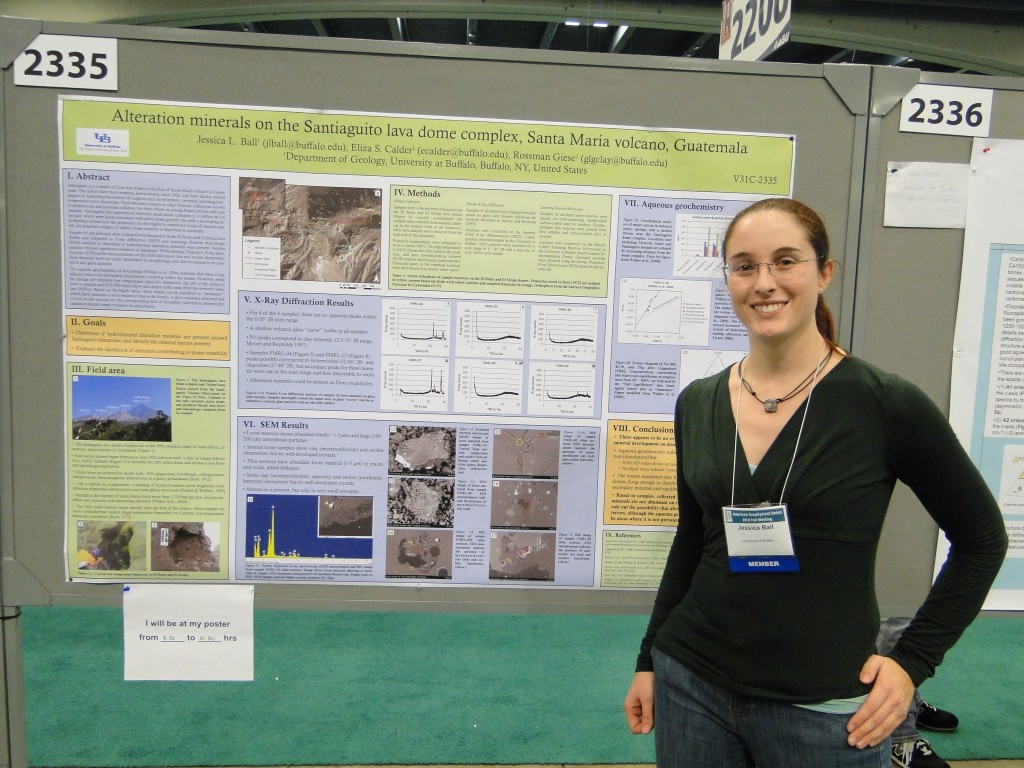
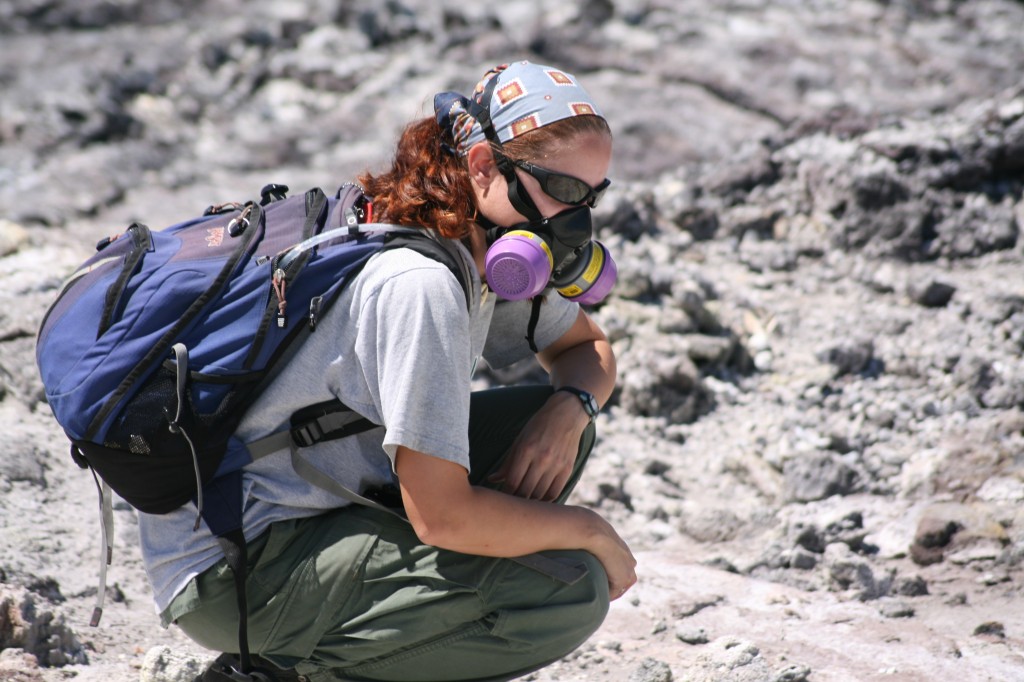
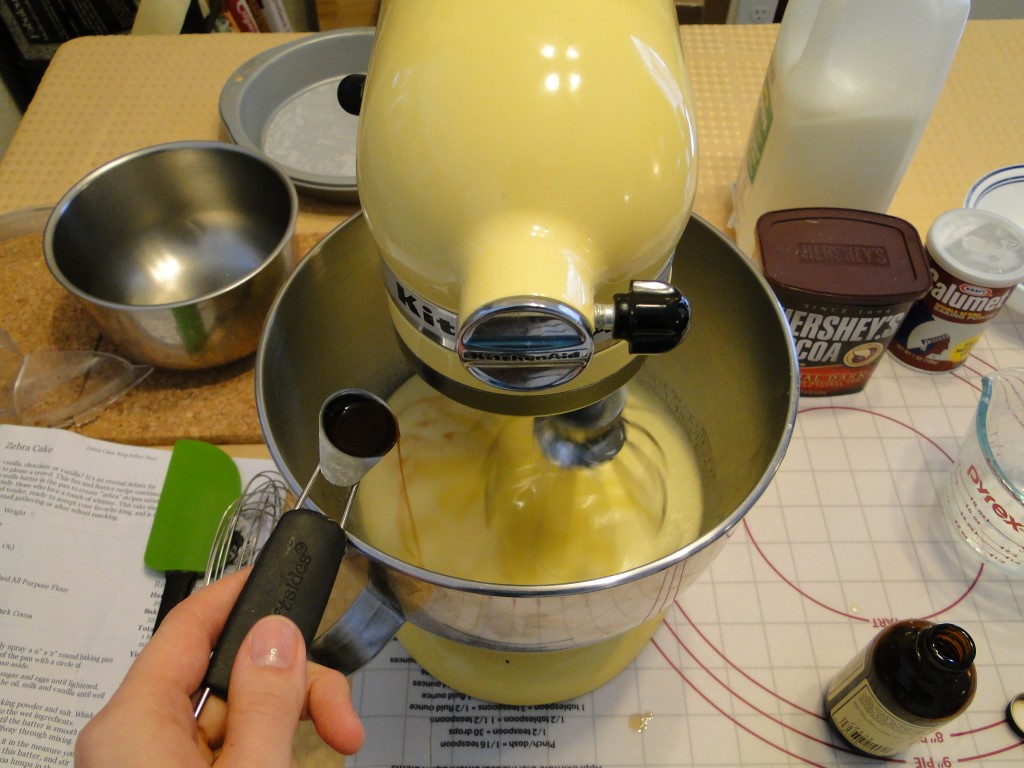
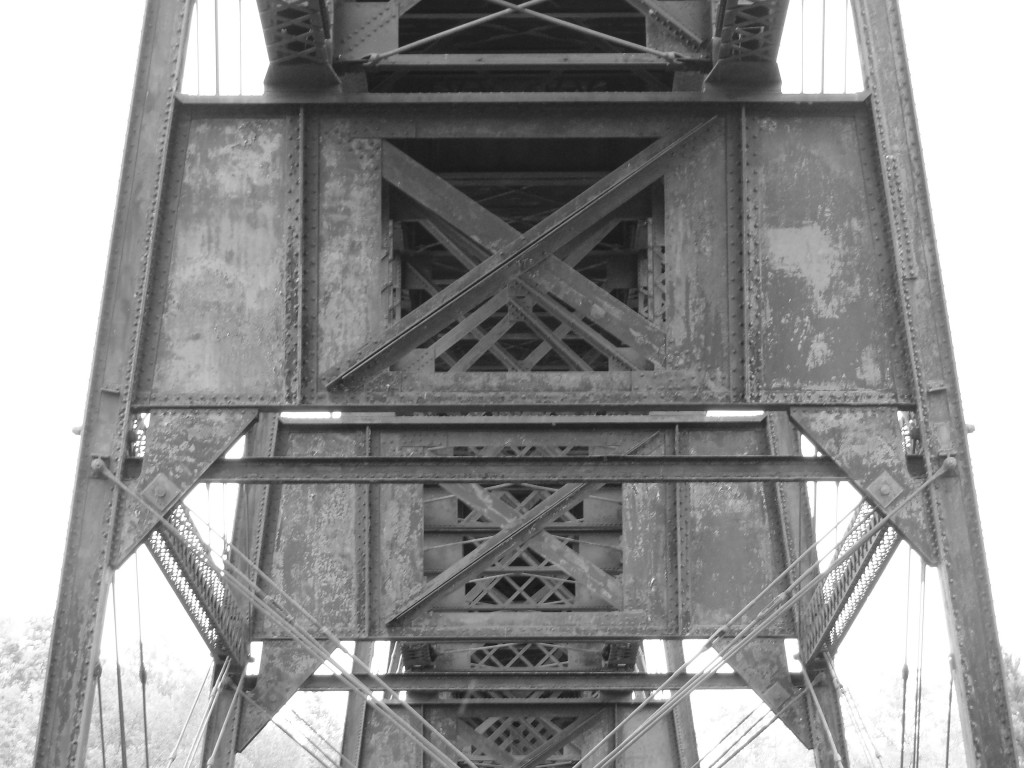
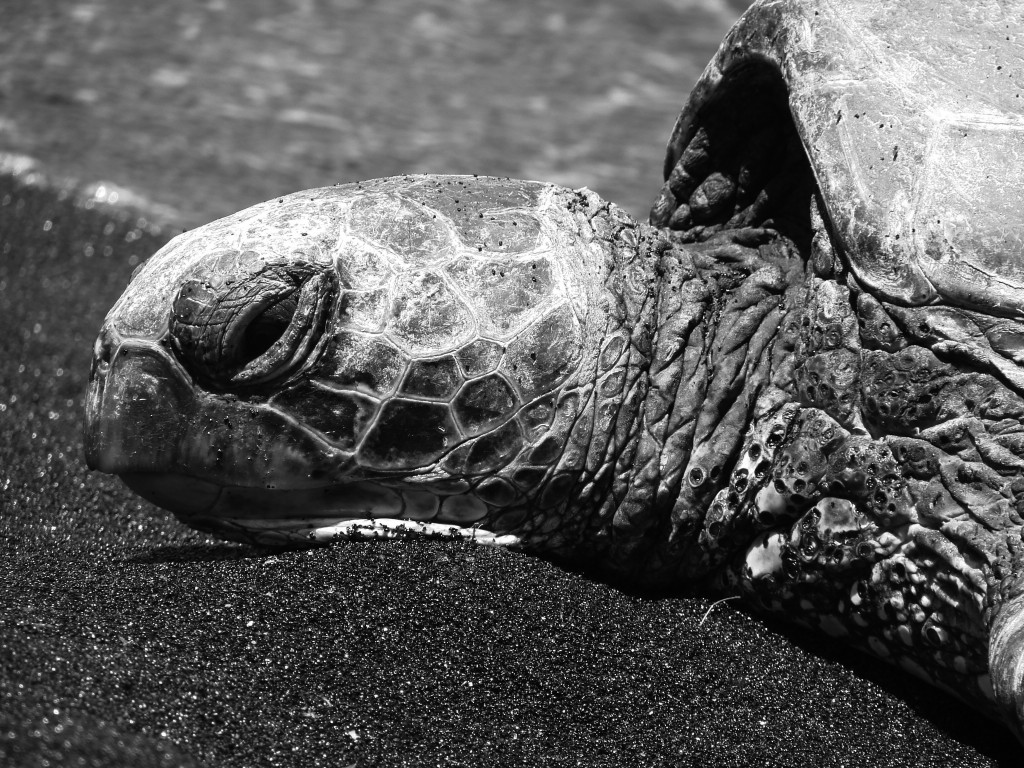

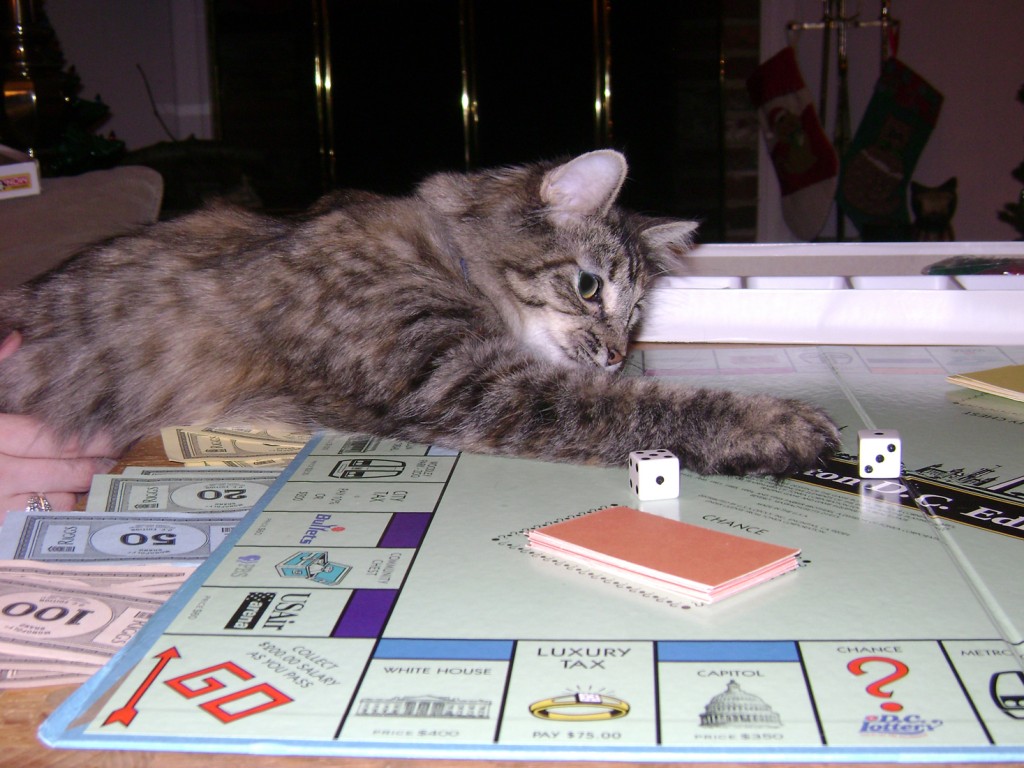
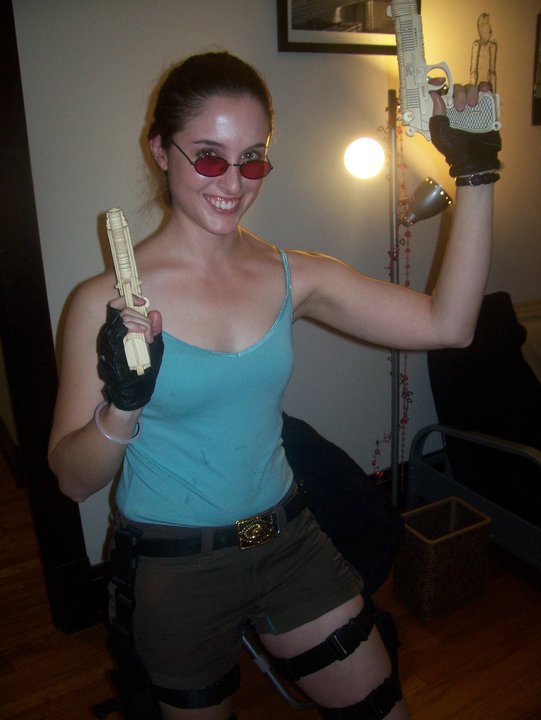
 Jessica Ball is a volcanologist at the U.S. Geological Survey, researching volcanic hydrothermal systems and stability, and doing science communication for the California Volcano Observatory. She previously worked at the Geological Society of America's Washington DC Policy Office, learning about the intersection of Earth science and legislative affairs. Her Mendenhall postdoc and PhD focused on how water affects the stability of volcanoes, and involved both field investigations and numerical modeling applications. Her blogging covers a range of topics, from her experiences in academic geosciences to science outreach and communication to her field and lab work in volcanology.
Jessica Ball is a volcanologist at the U.S. Geological Survey, researching volcanic hydrothermal systems and stability, and doing science communication for the California Volcano Observatory. She previously worked at the Geological Society of America's Washington DC Policy Office, learning about the intersection of Earth science and legislative affairs. Her Mendenhall postdoc and PhD focused on how water affects the stability of volcanoes, and involved both field investigations and numerical modeling applications. Her blogging covers a range of topics, from her experiences in academic geosciences to science outreach and communication to her field and lab work in volcanology.
Great post, Jessica! If I have a chance in the midst of all this thesis writing/revising, I’ll try to do a similar post.
Go for it! I love the Tumblr blog, but I think it would be neat to see more about all the other geobloggers too.
By the way, love the Lara Croft costume!
Ace post – I was just drafting up something very similar of my own.
You’re absolutely right about the misconceptions about approachability – my geochemist office mate was told by someone she was chatting to in a bar a couple of weeks ago “you’re really friendly – I didn’t think people like you talked to people like me”.
Fantastic post. My version would involve lots of pictures of my kid.
That would be great! I’ve only got the cat to show off, and I didn’t want it to degenerate into cute cat photos, so I restrained myself.
Excellent post Jess. Since I’ve been a friend of yours for several years, I’d just like to mention that I’ve never been bored talking to you, even when you geek out over rocks; it makes you more interesting, not less.
Aw, thanks!
Is that what having a life looks like?
Fascinating.
Somewhere between science and parenting, I seem to have forgotten.
This is a great post. I am also in a “nerdy” and thankless field of work, and am thinking about getting into something I actually am passionate about (volcanology). I run a neat little volcano blog, and am itching to perhaps re-enroll for a geology doctorate in the future.
If you don’t mind me asking, how competitive is the field, are there a lot of career paths and opportunities, and what are some of the best universities to go to? I like this blog, and have been a fan for a while!
Thanks! It’s great that you’re interested in volcanology as well. I would have to say that the field is pretty competitve – it’s a small community – but that certainly doesn’t mean you can’t find work to do. There are lots of career paths that use volcanology, everything from planetary science to remote sensing to geothermal exploration to hazard management.
As for universities, that would depend on what you want to specialize in. UB has a large volcanology group; other groups are at Michigan Tech, University of Hawaii, Oregon and Oregon State, New Mexico Tech, Arizona, University of Washington, and the University of South Florida. There are also smaller groups or individuals at other universities, as well as international groups in Canada, Mexico and the UK. I’d suggest doing some digging through department websites to see who specializes in topics you’re interested in!
Great post Jessica. It shows what a REAL geologist looks like.
If you want to get beyond dabbling in historical reenactment at ren-fairs, try the SCA. A great mix of the those with an intellectual bent in it for the history and those with an athletic bent in it for sport and glory.
Actually, that was SCA! I went to Pennsic 39 as part of my summer vacation a few years back…in that photo, we were just getting ready for the opening procession. I mostly played in college, but haven’t had much time to keep it up during grad school.
Whoa! Pennsic is the big time! I would love to attend but the drive from CA is a bit much.
p.s. My wife admires your dress. One of her SCA goals is to learn to make the garb. I will settle for learning to have my arrow hit something other than straw.
Great post! I think this entire series is a great idea, but this is a particularly detailed illustration of the concept of a scientist also being a person.
By the way, forgive the plug, but given your interest in historical instruments I think you might enjoy my post on a visit to a harpsichord builder’s workshop. (Forgive me if the link doesn’t work correctly, I’ve never been able to get the hang of embedding stuff.)
[…] pegaram a mesma onda, inclusive Jessica Ball do sempre excelente Magma Cum Laude, que escreveu um post super-simpático de como é a vida real de uma geóloga. Várias salvas de palmas a todos os cientistas que, com seus exemplos, abrem esta inacreditável […]